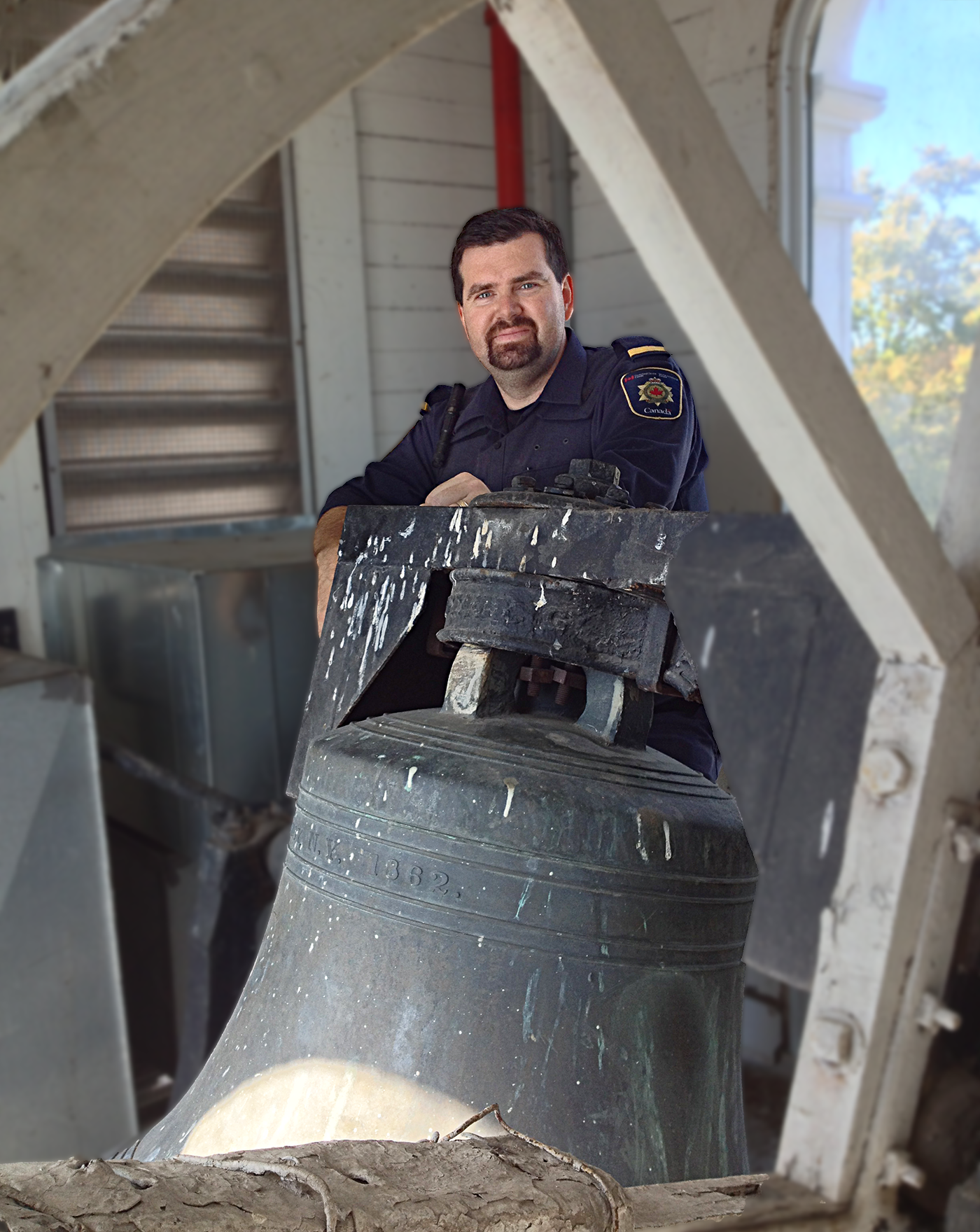Behind the Badge, a calling, not a career: Chris Veech on finding purpose in corrections
October 3, 2025

When Correctional Officer Chris Veech talks about his career, his words are tinged with the kind of warmth and respect you’d expect from someone describing a lifelong passion, not just a workplace. For him, corrections has always been about more than the job — it’s about honour, history, and the people who have walked beside him.
The 26-year CSC veteran, whose decades of service were recognized with the King’s Coronation Medal this past September, still remembers the early days of his career at Kingston Penitentiary (KP) in 1999.
“Like many jails, it was a beautiful and complicated place, full of living history,” he says. “You could climb into the attic above the dome in the north gate building, and see the walls covered in the signatures of the officers who had stood there before us.
“The earliest signature I found up there was from 1870. Standing in the same spot as someone who did my job over a century ago was surreal. I even signed my own name because I wanted to be part of that story, too.”
With its tunnels, soaring domes, and storied past, KP played a significant part in shaping his journey, Chris says. He recalls watching the way staff would respond to emergencies, a wave of uniforms rushing as one body toward danger. “You knew help was only seconds away,” he says. “There was a beauty in that solidarity.”
Just before the prison closed in 2013, he guided colleagues on tours of all its hidden spaces, preserving memories with more than 15 gigabytes of photos taken. One moment stands out like a spiritual memory: the CSC Community Pipes and Drums band playing Amazing Grace inside the prison’s hundred-foot-tall dome during its official closing ceremony. “The sound went up and came back down like a wave,” he says. “It hit you in the chest. It was holy. I’ll never forget it.”
Today, Chris serves at Millhaven Institution, where his role has grown beyond the ranges. As a mentor, he helps new officers find their footing. As part of the Critical Incident Stress Management and Employee Assistance Program teams, he supports colleagues through the kind of moments that leave invisible scars. “Sometimes it’s not the big things,” he explains. “It could be witnessing a fight or responding to a stabbing with a pencil. Even if no blood has been drawn, it can weigh on you. Just having someone stop and ask, ‘How are you doing?’ can mean the world.”
He also facilitates the Wounded Warriors Trauma Resiliency Course, teaching staff — from officers and parole workers to clerks and food service staff — how trauma affects the body and how resilience can be built. “I’ve seen colleagues take their own lives because they didn’t know how to cope,” Chris says quietly. “Helping people understand themselves, giving them tools to survive and thrive — that’s some of the most meaningful work I’ve ever done.”
Service, for Chris, extends to ceremony too. A former member of the Army Reserve, he is currently the Squad Leader of the Millhaven Guard of Honour, where he leads a team of officers who march and stand vigil at funerals and commemorations. “The Honour Guard lets me bring forward the values I learned in the Army—to honour fallen comrades, to show families their loved one’s sacrifice matters. It’s sacred,” he says.
That same spirit of remembrance also drew him to join the National Monument Committee, where he has spent 15 years working with colleagues to create a permanent memorial to CSC staff who have lost their lives in the line of duty. After two decades of fundraising and advocacy, the monument will be unveiled in Kingston this fall. “It will stand as a testament to their dedication and sacrifice,” Chris says, his voice catching with emotion. “It’s about making sure they’re never forgotten.”
This September, Chris was among a select group of Canadians honoured for demonstrating service above and beyond their duties — people who have made exceptional contributions to their community or to the nation. Within CSC, only a limited number of officers and employees are chosen, making the recognition all the more meaningful.
For Chris, the honour is humbling. “I don’t do any of this for recognition,” he says. “I do it because it’s rewarding, because it matters. But to know others see value in that fills me with pride. I accept it on behalf of my wife, my son, my colleagues and comrades, and everyone who’s walked this journey with me.
“Corrections gave my service purpose. I love where this journey has taken me. It’s about history, it’s about people, it’s about being part of something bigger than yourself, that had life before you and will continue to have life long after you’re gone.”